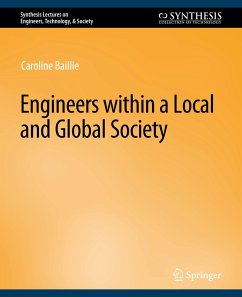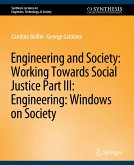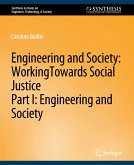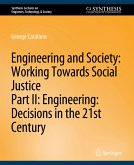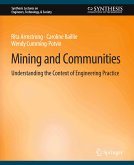Engineers, Technology and Society presents topics intended to aid the practicing engineer in reflecting upon the nature and purpose of their own practice within the engineering profession and how that is related to and implicated in social, economic and political issues. The series will include external relations between engineering, economic systems and social and political practices, as well as power structures and working conditions within the organisation.In an increasingly competitive and hostile environment in which practicing engineers are forced to spend their lives fighting for higher profit margins, many engineers become despondent and often leave the profession just a few years after graduation. They do not feel they are engineering for those in need in the world but for a small minority who can pay. There are an increasing number of engineers in the workplace who feel dissatisfied with these issues but do not know where to begin to address them. It is hoped that thesebooks will start a conversation in many parts of the world where diverse engineers are working.This introductory book of the series presents an overview of the key issues at stake. I consider how, as engineers, we might decide what is the right thing to do by exploring rights and notions of freedom and what these might mean in a world where we are, according to some, 'training for compliance'. I consider engineering in the past and how it has been used to contribute to social contexts in the Western world as well as in developing countries. I look at our responsibility as engineers to learn from the past to enhance our understanding and take appropriate action related to contemporary industrial development and globalization. Finally, I present a case study of my own engineering for others to critique. Practicing what you preach is never easy and living as a just engineer presents many challenges. As Ursula Franklin states clearly in her Massey lectures which I discuss in chapter 1, engineers have choices; it is up to us to ensure that we are aware of the way in which our engineering practice contributes to global social, economic and political issues so that we are able to make response - able choices.

